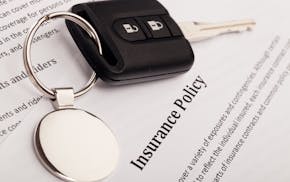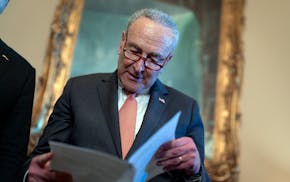James Dyson harks back to an era when corporations named after people became household words -- think Pillsbury, Honeywell and Dayton.
Now Dyson, the British creator of the pricey Dyson bagless vacuum cleaner and the company's TV pitchman, is approaching household-name status. He's a world-famous inventor, a familiar face on TV and, through his firm, Dyson Ltd., holds about one-fifth of the U.S. vacuum cleaner market.
As evidence of his stature, Dyson was in Minneapolis last week to speak at Target Corp.'s Design Month, a series of meetings held for the firm's several hundred internal product designers and engineers who create company-branded clothing and housewares. Target brings in outside "design influencers" for the event, and Dyson "was a natural fit," said Target spokesman Joshua Carter.
Dyson's message: "I encourage wrong thinking, which is the unconventional or obtuse way of doing things."
To underscore this point, Dyson says he went through 5,127 prototypes to design his first vacuum cleaner.
"Wrong thinking can end up in failure," he explains. "But if you don't take risks you slowly wither because things change and you don't keep pace."
In person, Dyson, 65, seems to be exactly the approachable, off-beat scientist of the TV ads, even though he's worth $4.2 billion, according to Forbes magazine. He can explain in layman's terms why Dyson vacuum cleaners don't lose suction: His "dual cyclone bagless vacuum cleaners" use high-speed air flow but not air filters, which he says could become clogged. One of the dual air torrents picks up dust, the other small objects.
But, despite his easygoing demeanor, Dyson said he's not a patient man.
"I'm very impatient, and I do get cross with things that don't work properly," Dyson said. "That's the spur to come out with something that works and solves the problem. It's actually quite stimulating."
Manufacturing advocate
He's also a strong advocate of mechanical design, even though we live in an increasingly digital world.
"I'm worried that children, students and entrepreneurs will only focus on software and Internet startups," Dyson said. "I think that making the manufacturing industry successful globally is extremely important, and we need people to go into manufacturing to create wealth."
Virtually all of Dyson's wealth is tied up in privately held Dyson Ltd. He is the sole owner but holds no executive titles. He's hired a CEO to run the company so that he can work with the company's engineers on new products. Based in Malmesbury, England, the 4,000-employee company also has operations in the United States, Singapore and Malaysia, as well as a marketing presence in 52 countries. In 2011 it reported a profit of nearly $480 million on revenue of more than $1.5 billion.
If it sounds like Dyson is cleaning up, it's because the market for vacuum cleaners is huge.
Dyson Ltd. competes in the over-$200 segment, which makes up about half of North American vacuum cleaner sales, or about $1.75 billion annually, said Adam Fleck, an analyst for Morningstar in Chicago. Top-of-the-line Dyson machines fetch $650. Worldwide, vacuums costing more than $200 are at least a $5.5 billion market, Fleck said. In early 2011, Dyson had 23 percent of the U.S. vacuum cleaner market, Newsweek reported at the time.
Dyson, who says he's not driven by profits, has no plans to ever take the company public.
"I want the company to continue with its existing spirit, where we don't have to report to anyone, worry about the stock price or be concerned about what the investors might think," Dyson said. "We don't want to have to think about anything except the product. We want to be able to invest a lot more than we should in things, and wait longer for a return."
While investing an entire fortune in one company would make some nervous, Dyson says it doesn't bother him.
"I didn't have anything when I started. I came from a very poor family, and I had a huge bank debt up until I was in my late 40s," Dyson said. "I like living on the knife's edge."
He does, however, live well. He owns a 300-acre country estate in England, and since 2007 has been officially known as Sir James Dyson -- he's an honorary English knight. Still, he says wealth is less important to him than his work.
"I don't ever stop to think about it," he said of his net worth. "I'm on to the next thing."
Steve Alexander • 612-673-4553

How to parry rising insurance costs

Keeping personal finances simple can improve your wellbeing

![Capella Tower at 225 South Sixth St. Tuesday September 6, 2011. ] GLEN STUBBE * gstubbe@startribune.com Minneapolis skyline from the 51st floor of IDS](https://arc.stimg.co/startribunemedia/7C263DJZQTPRDEXI74SMH2M3HI.jpg?w=600&h=600&auto=format%2Ccompress&cs=tinysrgb)